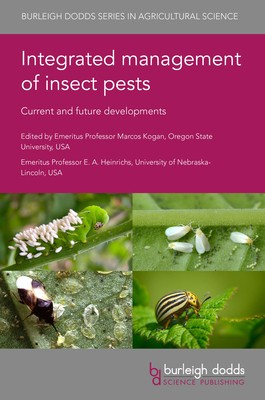
- We will send in 10–14 business days.
- Publisher: Burleigh Dodds Science Publishing Ltd
- Year: 2019
- Pages: 600
- ISBN-10: 1786762609
- ISBN-13: 9781786762603
- Format: 15.2 x 22.9 x 5.2 cm, kieti viršeliai
- Language: English
- SAVE -10% with code: EXTRA
Integrated Management of Insect Pests: Current and Future Developments (e-book) (used book) | bookbook.eu
Reviews
Description
This volume summarises current developments in integrated pest management (IPM), focussing on insect pests.
Chapters discuss advances in understanding species and landscape ecology on which IPM is founded. The book then reviews advances in cultural, physical and, in particular, biological methods of control. Topics include developments in classical, conservation and augmentative biological control as well as the use of entomopathogenic fungi, viruses, nematodes and semiochemicals. The final parts of the book summarise current research on monitoring pesticide use as well as emerging classes of biopesticides.
EXTRA 10 % discount with code: EXTRA
The promotion ends in 21d.09:19:24
The discount code is valid when purchasing from 10 €. Discounts do not stack.
- Publisher: Burleigh Dodds Science Publishing Ltd
- Year: 2019
- Pages: 600
- ISBN-10: 1786762609
- ISBN-13: 9781786762603
- Format: 15.2 x 22.9 x 5.2 cm, kieti viršeliai
- Language: English English
This volume summarises current developments in integrated pest management (IPM), focussing on insect pests.
Chapters discuss advances in understanding species and landscape ecology on which IPM is founded. The book then reviews advances in cultural, physical and, in particular, biological methods of control. Topics include developments in classical, conservation and augmentative biological control as well as the use of entomopathogenic fungi, viruses, nematodes and semiochemicals. The final parts of the book summarise current research on monitoring pesticide use as well as emerging classes of biopesticides.


Reviews